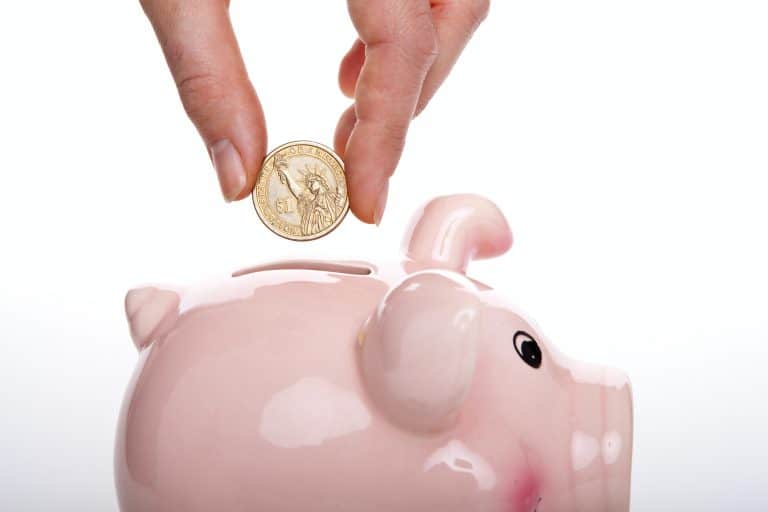Building Confidence Around Money: How to Take Charge of Your Financial Future
Why Money Confidence Matters
Money, Money, Money
Just the word can stir up emotions ( and Abba tunes)—whether it’s stress, anxiety, or uncertainty. For many of us, the idea of getting a handle on our finances can feel overwhelming, like a mountain we’re not quite sure how to climb. But here’s the truth: building confidence around money isn’t just about having spreadsheets full of numbers or understanding the stock market. It’s about mindset, habits, and taking small, meaningful steps.
By the end of this blog, you’ll feel more empowered, with practical actions you can take today to start shaping a financially confident future. Let’s dive in.

Understanding Your Money Story
Before you can change your financial situation, it helps to understand the story you’ve been telling yourself about money. Your ‘money story’ is the set of beliefs you’ve built up over your life. Maybe you grew up hearing phrases like “money doesn’t grow on trees” or “I’m just not good with money.” These early messages shape how we feel about our finances today—often holding us back from making positive changes.
Take a moment to reflect. What are your money beliefs? Are they true? Are they helpful? Write them down and challenge them. For example, replace “I’m bad with money” with “I’m learning to manage my money better every day.” It’s time to change the narrative.
Know Where You Stand Financially (Mindfulness)
Confidence starts with clarity. You can’t improve what you don’t understand, so the first step is to get real about your financial situation. It’s a bit like cleaning out a cluttered attic—it might feel overwhelming at first, but once you’ve taken stock, you know exactly what you’re dealing with.
- List Your Assets and Liabilities: Create a simple balance sheet. What do you own (savings, investments, property)? And what do you owe (credit card balances, loans)?
- Track Your Income and Expenses: Understanding your cash flow—what’s coming in and what’s going out—is key to feeling in control. You could use a simple spreadsheet or an app like Money Dashboard or YNAB.
The goal here isn’t to judge yourself; it’s to gain awareness. This awareness gives you power.
Small Wins Make a Big Difference
One of the fastest ways to build money confidence is to rack up a few quick wins. Remember, even the smallest progress can snowball into something bigger.
- Create a Budget That Reflects Your Values: A budget isn’t about restriction—it’s about choosing how you want to use your money. Spend in line with what you care about. Cut back on things that don’t bring joy, and make room for those that do.
- Set Up an Emergency Fund: This doesn’t need to be huge. Even putting aside £50 a month builds a cushion that brings peace of mind over time.
Every small step forward makes you feel more capable, which makes the next step easier. That’s the snowball effect of confidence.
Overcoming Financial Setbacks
Let’s be real—life doesn’t always go to plan. Redundancy, unexpected bills, or simply a bad month can knock us off track. Building confidence means being prepared for setbacks and knowing they don’t define your journey.
- Emergency Fund Benefits: That little cushion you’ve been building? This is when it shines, reducing anxiety and giving you breathing room.
- Adjusting Without Guilt: If times get tough, it’s okay to adjust. Tighten the budget a little, pause savings for a month—do what you need to do, without self-blame.
Setbacks are normal. Confidence comes from knowing you have the tools to adjust and get back on track.
Setting Goals That Motivate You (Fulfilment)
The best way to turn financial anxiety into action is by setting meaningful, motivating goals. When your money goals are linked to things you care about, suddenly, managing money feels less like a chore and more like a path to the life you want.
- Make Your Goals SMART: Goals should be Specific, Measurable, Achievable, Relevant, and Time-bound. Instead of just saying, “I want to save more,” try “I want to save £1,000 by the end of the year for a family holiday.”
- Think Big and Small: Dream about the long-term—like buying a home—but also set short-term goals that bring you joy, like a “fun fund” for guilt-free spending on things you love.
Celebrate Your Milestones
Acknowledging your progress grows confidence. Hitting financial milestones—big or small—deserves a moment of celebration.
- Treat Yourself: Reaching a savings goal? Treat yourself to a nice dinner or a movie night. It doesn’t have to break the bank, but it should feel rewarding.
- Acknowledge Growth: Take a moment to reflect on how far you’ve come. Celebrating milestones keeps you motivated and reminds you that you’re capable.
Tools and Support: You Don’t Have to Go It Alone
Remember, you don’t need to face financial challenges alone. There are tools, people, and communities ready to help.
- Financial Coaching and Resources: Working with a coach can provide structure and accountability. A coach can guide you, answer your questions, and help you stay on track.
- Accountability and Community: Share your goals with a trusted friend, or join a money-minded community. Having someone to talk to can make all the difference.
FAQ: Common Questions About Building Money Confidence
1. How do I start feeling more confident about money if I’m overwhelmed?
Start small. Focus on one area at a time—like tracking your expenses for a month or setting up an emergency fund. Small wins lead to momentum, and that’s how confidence builds over time.
2. What if I’ve made big financial mistakes in the past?
Everyone makes mistakes, especially with money. The key is to learn from them without dwelling on guilt. Use setbacks as learning opportunities to inform better decisions going forward.
3. How can I budget without feeling restricted?
Think of a budget as a tool to spend your money on what matters most to you. It’s not about restriction; it’s about aligning your spending with your values and goals. Make sure to include a “fun fund” so you can enjoy life now as well.
4. Do I need to earn more to be financially confident?
Not necessarily. Confidence comes from managing what you have effectively, not just earning more. Focus on mindful spending, saving, and setting realistic goals. Of course, increasing your income can help, but it’s not the only way to feel financially secure.
5. Should I get help from a financial coach?
If you’re feeling stuck or unsure of where to begin, a financial coach can provide guidance, accountability, and tailored advice. Sometimes an outside perspective is all you need to move forward.
Start Today for a More Confident Tomorrow
Building confidence around money doesn’t happen overnight, but every journey starts with a single step. Whether it’s tracking your spending, setting a small goal, or creating a budget, pick one thing and start today. Remember, it’s not about perfection—it’s about progress.
You’ve got this. One step at a time, you’re building the financial future you deserve.
Are You Ready To Take Action?
I’d love to hear from you! What’s the one step you’re taking today to build your money confidence?
And if you’re ready to kickstart your journey to financial happiness, consider booking a free 30-minute discovery call. Let’s take charge of your financial future together.






